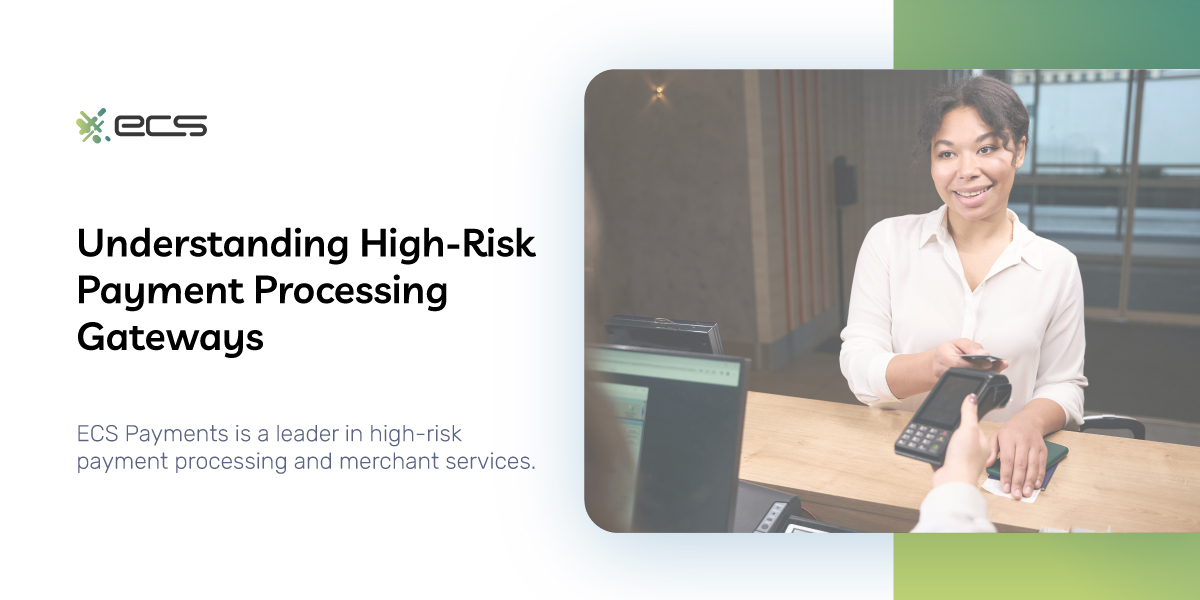What makes a business high-risk? What is the risk? And who are they posing the risk to? And how does a high-risk payment processing gateway differ from a traditional one?
To fully comprehend these questions, we’ve crafted a comprehensive guide to help you navigate the world of high risk.
Defining High-Risk Businesses
In broad view, high-risk merchants are those who pose a risk to payment processors. The risk is the potential loss of revenue due to excessive chargebacks, unstable business history, poor credit, and more.
When a payment processor approves a business for a merchant account, they essentially agree to work with them, trusting that their facilitation of funds will not be in vain and that the merchant will be able to pay their processing fees and avoid costly chargebacks.
However, high-risk businesses are typically more prone to chargebacks, which can result in higher risk to payment processors. However, because these businesses still need a way to accept digital payment, specific payment processors have made exceptions and will work with these merchants. With a few caveats, such as higher processing fees, closer risk monitoring, rolling reserves, and possible account closures.
Below, we will review all of this in further detail.
Reasons A Business May Be High-Risk
In general, if a business falls under a particular industry, they are automatically high-risk.
Common industries that fall into the high-risk category are:
- Adult services and entertainment
- Bitcoin and Forex
- Cannabis and CBD
- Credit Repair
- Firearms
- Gambling
- Nutraceuticals
- Online dating
- Pharmaceuticals
- Subscription services
- Telemarketing
- Tobacco and smoke shops
- Travel agencies
So why do specific industries fall into the high-risk category?

Intangible Products
Digital products, such as software (saas), applications, or streaming and subscription services, are highly susceptible to eCommerce chargebacks. It’s easy for someone to claim that they never received a product, that it didn’t work right, or that it was never authorized in the first place when there is no physical evidence. The consumer can claim that they unintentionally downloaded the product or that the product never downloaded properly, making it unusable.
When it comes to receipts of purchases, consumers of digital services never sign a physical receipt, so it is easy to claim fraud on a purchase.
Additionally, many digital merchants, such as smartphone application services or cloud-based software products, often make it difficult to contact.
Therefore, if a consumer decides to cancel a “free trial” before a subscription kicks in or wants to cancel a service before the renewal period but finds it challenging to do so, they can more easily call their bank and file a chargeback on the impending transaction.
As a result, these types of merchants will need to look for high-risk e-commerce payment options that offer recurring payment solutions. Digital gateways are easy to find, but locating one that offers secure point-of-sale solutions for high-risk subscription transactions is a little more nuanced.
Products and Services That Are Highly Regulated
Suppose a merchant sells things with regulated age restrictions due to content, side effects, or consequences of use, such as adult entertainment, tobacco, gambling, pharmaceuticals, etc. In that case, they will need a high-risk credit card processor.
Additionally, many states require special licenses to sell these types of goods or services. Other states forbid the sale of these entirely.
For example, online gambling is only legal in a handful of states at the time of this article, including Connecticut, Delaware, Michigan, New Jersey, Pennsylvania, and West Virginia.
Newer Products
New products such as CBD and vape products are also heavily regulated by the government. Marijuana and its subproducts, such as CBD, are becoming legal in more states, but not all, such as in Idaho, Nebraska, and South Dakota.
CBD products have boasted several health benefits, such as treating depression and alleviating severe PTSD or pain. However, the long-term effects of these products have yet to be seen.
Conversely, new products in the vaping realm have been known to cause serious health issues, countering carefully crafted marketing to persuade consumers of its benefits to curb cigarette addictions with the added bonus of fun flavors.
Lastly, there’s a chance that newer products could be subject to class action lawsuits down the road. Payment processors do not want to touch anything that could spell out legal trouble. With such government restrictions, consequences, and possible side effects, these types of products, thus, merchants, are high-risk.
Natural Health Remedies
In the same field as natural health but opposite in regulatory status comes the nutraceuticals field. Nutraceutical is derived from nutrition (required for daily life and health) and pharmaceuticals (for treatment of disease).
Nutraceuticals, a natural approach to health, come from any substance that is a food and provides health or medical benefits, promotes health, and prevents and treats disease.
Unlike pharmaceutical drugs, the FDA does not test, approve, or regulate any nutraceutical. Ever heard the adage “food is medicine”? Although natural medicine has been proven effective for centuries in Eastern cultures, western doctrine refuses to approve any natural health remedy or prevention supplement. Even those that Mother Earth has provided to us.
With a lack of the “seal of governmental approval,” payment processors automatically slap a high-risk label on this type of product.
Businesses Serving Questionable Clients
Not all businesses may try to be involved with or realize they are involved in criminal transactions. However, businesses that provide services such as bail bonds may accept payment to secure the release of a criminal.
Though many are arrested for crimes they are innocent of, in such scenarios as the previously mentioned, there is a potential for those funds to have been involved in a money laundering scheme or derived from illicit activities, such as extortion or drug sales.
In a related vein, there is credit repair and debit collection. It is not a crime to need credit repair or have difficulty paying off your debt. However, the nature of these businesses attracts clients who are clearly unreliable with money. This inconsistency is a considerable risk for payment processors, who could face merchants with insufficient funds and chargebacks.
But beyond specific industries, there are certain specifications about a business that may prompt a high-risk label, such as…
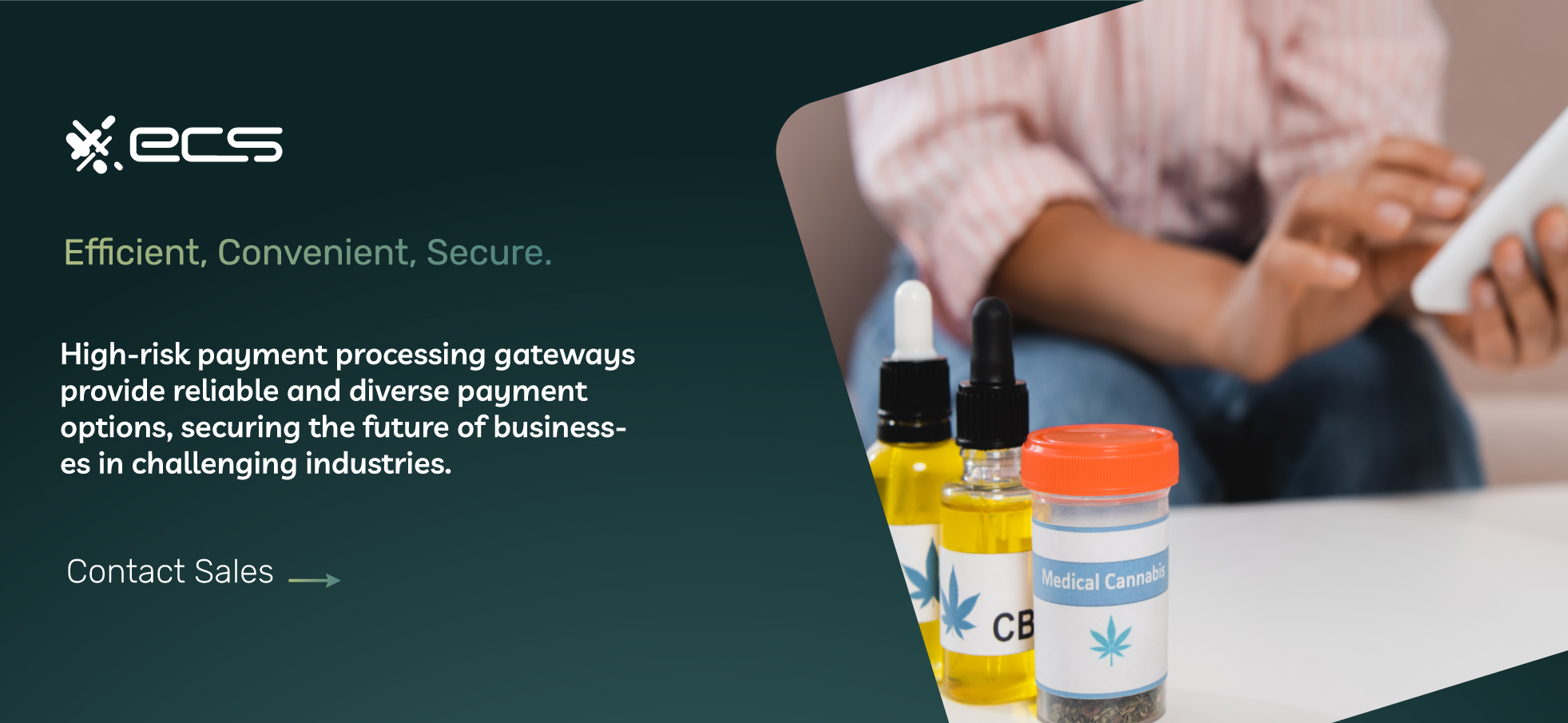
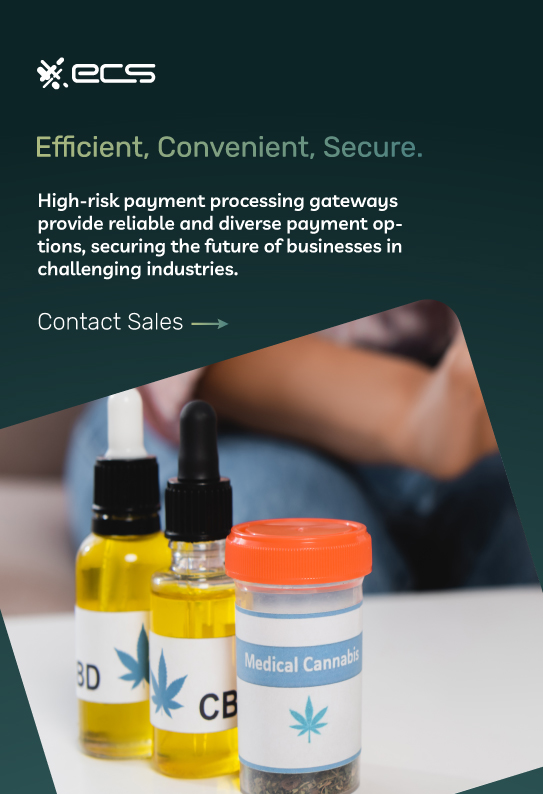
Multi-level Marketing Business Model
The multi-level marketing business model has acquired the infamous nickname of pyramid schemes. Ultimately, it gets its nickname because customers are aggressively converted into sales agents, and as more customers are converted into sales forces, the bottom of the pyramid expands. The individuals at the top build easily acquired residual income through less and less work.
Around 90% of MLM participants drop out in the first year. Around 80% of the participants lose money. And the product return rate hovers around 30%. This type of business model often exposes itself to customer frustration. And in many cases, this frustration naturalizes as chargebacks.
If a client (yet turned sales rep) has had a frustrating experience with a current salesperson, they may skip requesting a refund and go straight to their bank to issue a transaction dispute.
Uncontrolled Debt
It’s true that most businesses have debt. It’s usually necessary to take out a small business loan or borrow money in some capacity to start or expand a business. However, if debt gets out of hand, it can threaten the viability of your business.
Businesses in debt usually need to consider reducing their workforce, closing a location, and cutting back on inventory. These decisions can impact sales volume and revenue.
But why would a payment processor care if your business stays afloat or reduces revenue? Indebted businesses are a dangerous proposition. If a merchant is having a hard time making ends meet or paying back their debt, they may pose a financial risk to a payment processor with the inability to afford their payment processing fees.
Payment processors invest in their merchants. They take a chance on everyone that they offer a contract to. So, if an account that initially seemed prosperous turns out to be a dud, it’s taking up resources.
If you, the business owner, not only are in debt but also have poor credit, you will want to begin rebuilding your credit. Always pay your credit card bills on time and in full. Try to utilize under 30% of your available credit. And most importantly, only make purchases you can actually afford. If you see no way of ever paying funds back, it’s best to figure out a better financial solution to acquire what you need.
International Businesses
Most international businesses that work with multi-currency transactions require a high-risk eCommerce platform with an international payment gateway. That’s because a large portion of financial crimes are perpetrated outside the United States in countries such as Ghana, India, Indonesia, Nigeria, the Philippines, and Romania. International fraud costs the global economy more than $5 trillion a year.
Shipping products to international addresses could be a concern for fraudulent purchases. And for legitimate purchases, international shipping could always lead to delivery complications.
eCommerce merchants selling internationally will find that there is no way to obtain a Shopify, Square, or Stripe account; they do not cater to high-risk merchants. As a result, merchants who sell internationally will need a high-risk payment processor.
Real-world Examples of High-Risk Businesses
Below, we’ve identified a few real-world examples where business practices, rather than industry, could make a merchant high-risk.
One way to not only face legal trouble but to be rejected for traditional payment processing is with misleading marketing, such as with Theranos Inc., a healthcare technology company. This company marketed the development of a revolutionary blood-testing technology that was later revealed to not work as advertised. Producing inaccurate test results. This type of business practice can subject a merchant to high chargeback ratios. Making them ineligible for a low-risk merchant account.
Concealing your debt and inflating your profit reporting, like Enron, once a leading energy company, can lead to account closures or denial for a traditional merchant account. There are such things as s. Having bad credit won’t automatically disqualify you from accepting credit card payments, but you must look for a bad credit merchant account or high-risk payment processing gateway.
Improper billing practices, such as those made by McLaren Health Care, are a massive contributor to consumer chargebacks and a sure way to land yourself a high-risk payment processing gateway–and a legal scandal.
These real-world examples showcase how various factors, including faulty advertising, concealing debt, lying on your profit margin reports, and improper billing, contribute to high-risk merchant statuses and the need for a high-risk payment processing gateway to process various types of payment.
Determining Your Need for a High-Risk Payment Processing Gateway
So, if you assess your business, does it align with high-risk criteria? Does it sound like any of the above-mentioned examples? If your chargeback ratio is above the 1% threshold, if you have poor credit, if you are a brand new merchant, if your products are brand new to the market, or if you sell risky or new to the market products or services, the answer is probably yes. You will need a high-risk credit card processor for secure point-of-sale (POS) solutions.
Business Type Affects Payment Gateway Needs
Based on your specific industry, you may face particular challenges or have differentiating risk factors based on the consumer behavior in your sector.
For example, as we mentioned previously, if you offer bail bonds or credit repair services, you deal with unreliable customers. You may be risking working with someone who is involved in crime or someone who can’t seem to get their finances in order. Either way, you will need to protect your business with a secure payment gateway.
If you are specifically an eCommerce merchant, you will need to learn how to overcome online payment processing restrictions from WooCommerce platforms.
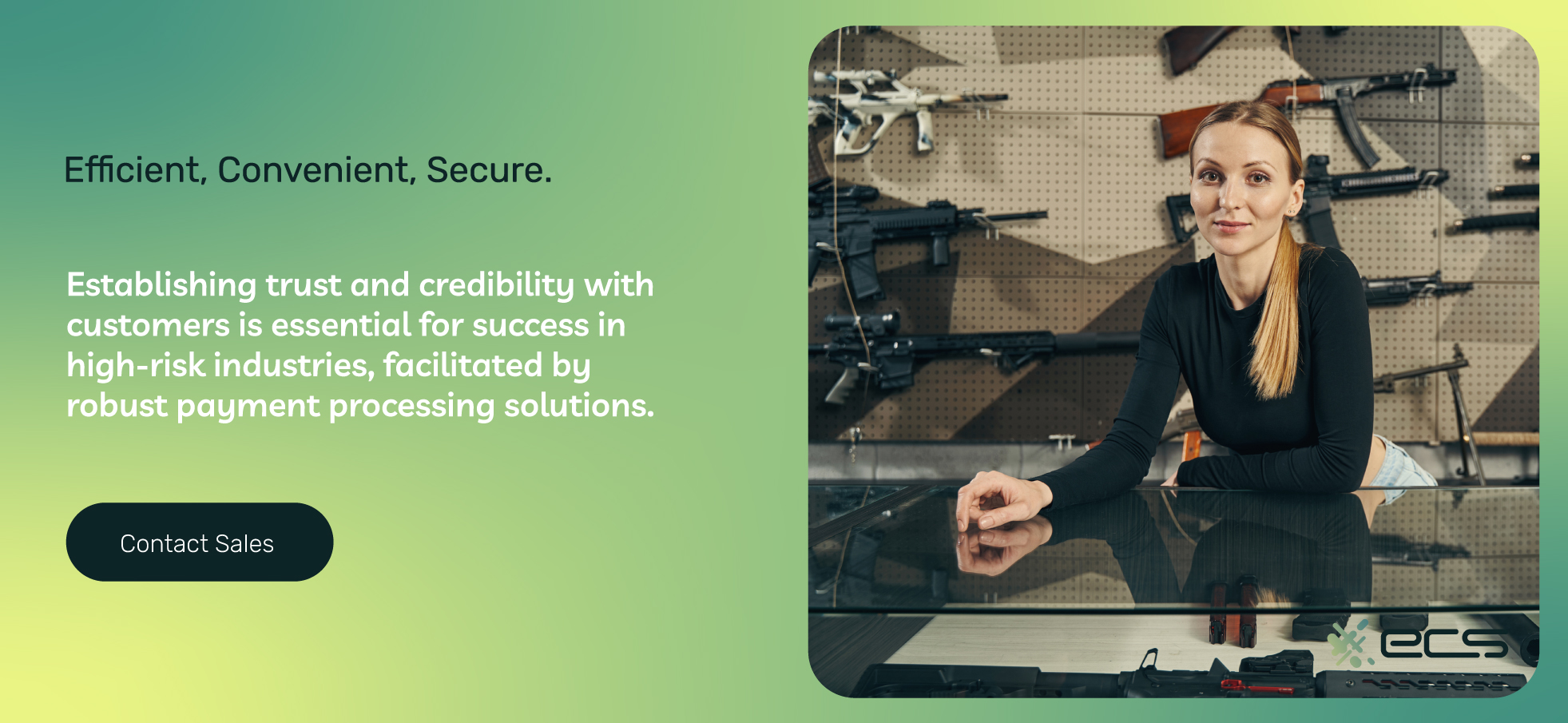
WooCommerce and High-Risk Online Store Risks
WooCommerce is one of the most popular online shopping platforms. It is an eCommerce plugin for WordPress, a commonly used website builder. If an eCommerce merchant uses WordPress to build their site, they most likely will use WooCommerce for their online sales.
The WooCommerce platform offers many tools for business owners to get their online shop up and running quickly. However, WooCommerce restrictions can make this a tricky venture for high-risk merchants. WooCommerce options are only available to high-risk merchants who use a third-party payment processor and integrate their high-risk gateway into their website accordingly.
Choosing the Right High-Risk Payment Processing Gateway for WooCommerce
Individualized merchant accounts provide you with complete control of your business and payment processing. For high-risk merchants, this is necessary. Without a dedicated high-risk merchant account, WooCommerce will almost certainly drop you. Other mainstream digital payment gateways like PayPal or Stripe also do not work with high-risk merchants or products.
Chargebacks: The Costly Consequences for High-Risk Merchants
Before we delve into the specifics of high-risk payment processing gateways, let’s chat about one of the biggest culprits for the need for one–chargebacks. A chargeback is when a cardholder contacts their issuing bank to dispute a debit or credit card transaction from a business. If the bank sees evidence to assume a charge might be illegitimate, they will forcibly reverse the payment from the merchant account.
From there (depending on the merchant’s processing agreement), they may be able to provide evidence as to why the transaction was, in fact, legitimate. If the merchant loses the chargeback or agrees with the dispute, they will not only lose the cost of the sale but also pay chargeback case fees. If the merchant wins the chargeback case, they will be returned the funds but must still pay the chargeback case fees.
Consumer protection laws from The Fair Credit Billing Act of 1974 protects consumers from unfair billing practices. As a result, consumers may issue a chargeback for any of the following reasons for in-person and eCommerce merchants:
- Defective item
- Item or service not as described
- Delivery issues
- Missing goods
- Services not provided
- Unauthorized transactions
- Fraudulent transactions
- Friendly fraud (intentionally buying something and then not wanting to pay)
- Unrecognized charges
- Billing errors
- Inability to cancel a subscription
- Unclear return policies
- Difficulty reaching a merchant to return an item
The FCBA also enables individuals to dispute any charges related to these types of occurrences.
Chargebacks were designed for consumer protection. However, they can often be over-utilized and cause unfair disadvantages for merchants.
Chargeback Consequences For Merchants
Chargebacks are a serious matter for merchants. One that could severely affect their business. Moreover, even if a merchant submits adequate evidence in the rebuttal portion of the dispute process, the decision is out of the merchant’s control and entirely reliant on the cardholder’s bank. And the bank usually sides with its customers.
Chargebacks can have serious adverse effects on a business, including:
- Chargeback fees of $20-$100 per chargeback
- Product loss
- Loss of processing costs
- Threshold fines of up to $10,000
- Decreased revenue
- Lost time
- Increased processing rates
- Account termination
- Being added to the Merchant Alert To Control High-Risk (MATCH) list
- Difficulty finding a new processor
These effects can make it difficult for merchants to pay their bills, restock their inventory, hire staff, make a profitable income, or grow.
The Role of Rolling Reserves in Mitigating Chargeback Risks
With high chargeback ratios (above 1%), a merchant’s only option is to secure a high-risk payment processing gateway. One way that high-risk gateways protect themselves from merchant accounts with potentially high chargeback ratios is to set their merchants up on a rolling reserve.
A rolling reserve secures a set percentage (typically 5-20%) of the cash value of a merchant’s monthly transactions aside into a separate account. The reserve will be periodically replenished with new funds as new sales come in. So, funds are constantly rolling in and out of the reserve. This provides the payment processor with secured funds should chargeback fees incur and the merchant be unable to pay.
Once a merchant proves themselves trustworthy with high revenue yields or with low chargeback ratios, the payment processor may revoke the rolling reserve.
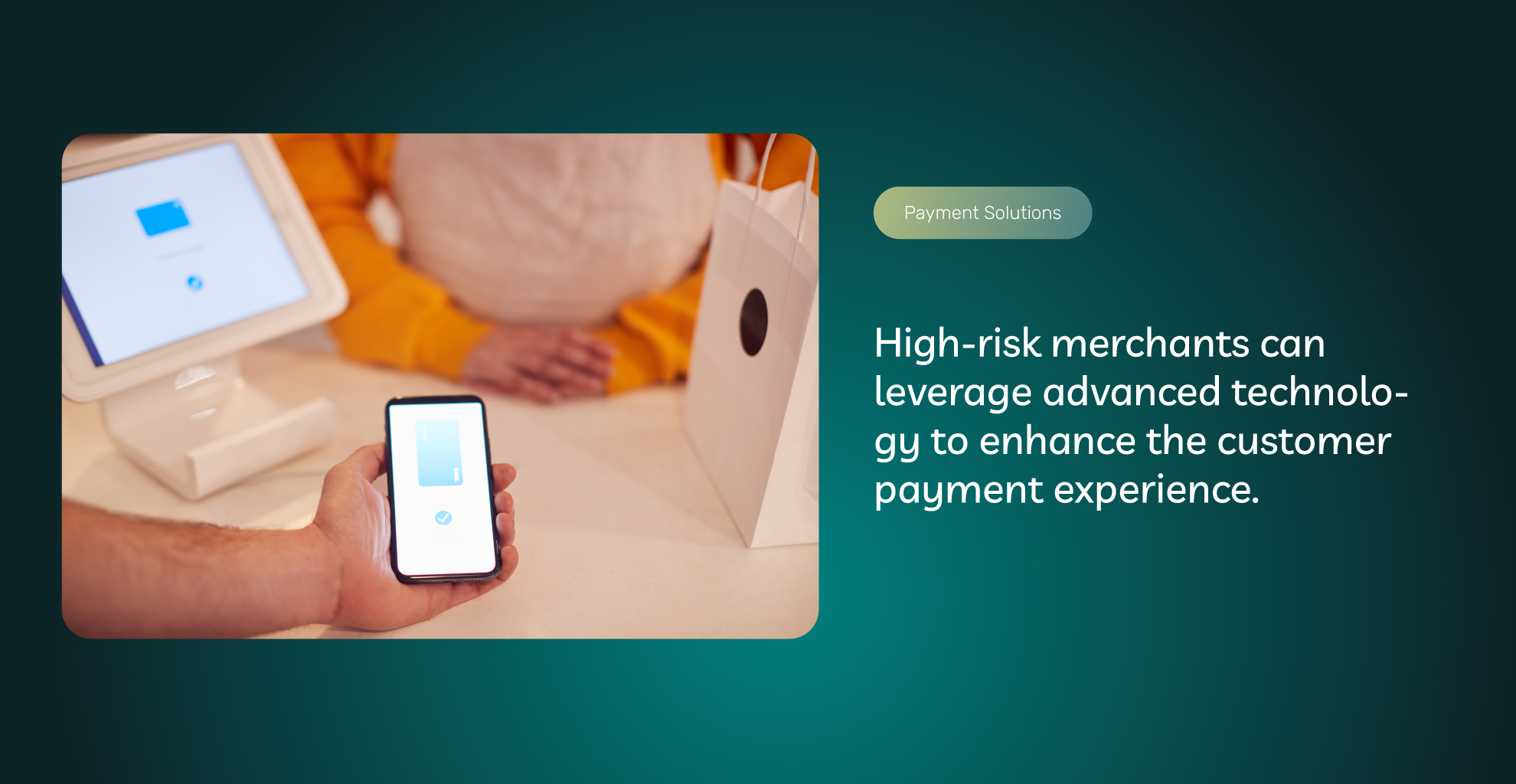
Implementing Best Practices to Reduce Chargebacks
Chargebacks are time-consuming and damaging to merchants. Unfortunately, there is no way to stop a cardholder once they’ve raised a dispute with their bank. However, implementing some best practices can help prevent it. To minimize risk, businesses can:
- Adopt credit card fraud prevention tools such as two-factor authentication, personal information screening, and location and address verification systems.
- Offer a reasonable and convenient return process.
- Have clear shipping and warranty policies, such as how long it will take to receive an order and what is and is not covered under the warranty policy.
- Ensure merchant name accuracy for clear customer bank statements.
- Provide accurate product descriptions.
- Provide easy-to-access customer service.
- Keep all branding consistent to reduce confusion.
- Maintain Payment Card Industry Data Security Standard (PCI DSS) compliance at your point of sale (POS) for all credit and debit card transactions.
- Accept only EMV and contactless card or mobile device payments for in-person transactions.
High-Risk Payment Processing Gateways Defined
A payment gateway enables businesses to process credit card payments, debit card payments, and ACH transactions. More specifically, a high-risk payment processing gateway is a solution for businesses that present a higher degree of risk for payment processing companies, such as businesses that struggle with their industry, credit score, or chargeback ratios.
How Are High-Risk Payment Processing Gateway Solutions Different?
To answer this question, let’s look at companies like Shopify, PayPal, Stripe, and Square. These are common payment solutions for merchants with low transaction volumes.
Shopify, for example, prohibits the sale of specific products online. Additionally, if they confirm your business has any high-risk red flags, they won’t allow for the use of their built-in payment gateway (which is operated by Square). These payment gateways are actually payment aggregators that bundle all their merchants under their own merchant ID.
Because of this, they cannot afford to have any risky merchants processing on their platform. Therefore, any business that looks like it may be high-risk will be terminated, even if already approved for an account. To add insult to injury, they might charge additional termination fees.
Though the processes of traditional and high-risk payment processing gateways are quite similar, high-risk payment gateway providers are typically more adept at processing larger transaction volumes and international transactions and may have additional safety protocols in place for fraud detection. Some advanced fraud detection tools high-risk platforms may leverage may include historical card database checks, IP blocking, browser fingerprinting, and email matching.
Because of the advanced processing requirements and the risk involved, high-risk payment processing gateways for high-risk businesses will have higher fees to compensate. However, in today’s nearly cashless society, higher fees beat the cost of not having a payment gateway at all.
Many of the traditional online processing companies as previously mentioned, such as Stripe and Square, have flat-rate processing fees that do not reflect the actual cost of running a transaction. As such, merchants will pay more than they should. Even if a high-risk payment processor has to charge more to cover their own risk, it might still cost less than using a payment aggregator.
Key Players in High-Risk Payment Processing
At a broad level, the distinction between a high-risk payment processing gateway and a standard or low-risk gateway is minimal. The key players remain the same, and the processes closely resemble each other.
The Merchant
The merchant (most likely you, the reader) is any in-person or online business that sells goods and/or services to consumers. The merchant can accept payment via debit or credit card with a physical card reader or a virtual terminal.
The Cardholder
A cardholder is the customer who has a credit card or debit card. This card would be issued by their bank to use for purchasing goods or services from a business.
The Issuing Bank
The issuing bank is a financial institution that is a registered member of the card brand associations. It issues credit cards to its customers. It is responsible to decline or approve the transaction based on the cardholder’s available funds or line of credit.
The Card Network
The card network generally refers to the four leading card brands: Visa, Mastercard, American Express, and Discover. The card networks determine the rules and regulations of credit card processing.
The Payment Gateway
The payment gateway is a POS software or web-based platform that transfers credit card information from the physical or virtual terminal to the payment processor.
The Acquiring Bank
To accept debit and credit card transaction settlements, merchants must obtain a merchant account through an acquiring bank. The acquiring bank is another financial institution that is a registered member of the card network associations.
The Payment Processor
The payment processor facilitates the transportation of credit card information to and from the payment terminal, the issuing bank, the card networks, and the acquiring bank.
Payment processors facilitate credit card, debit card, and ACH processing. Additionally, some payment processors or merchant service companies (like ECS Payments) can also supply physical terminals, POS systems, and gateway integration services.
Payment processors not only aid businesses in accepting credit cards, but they are also the primary contact for any questions regarding merchant account funds.
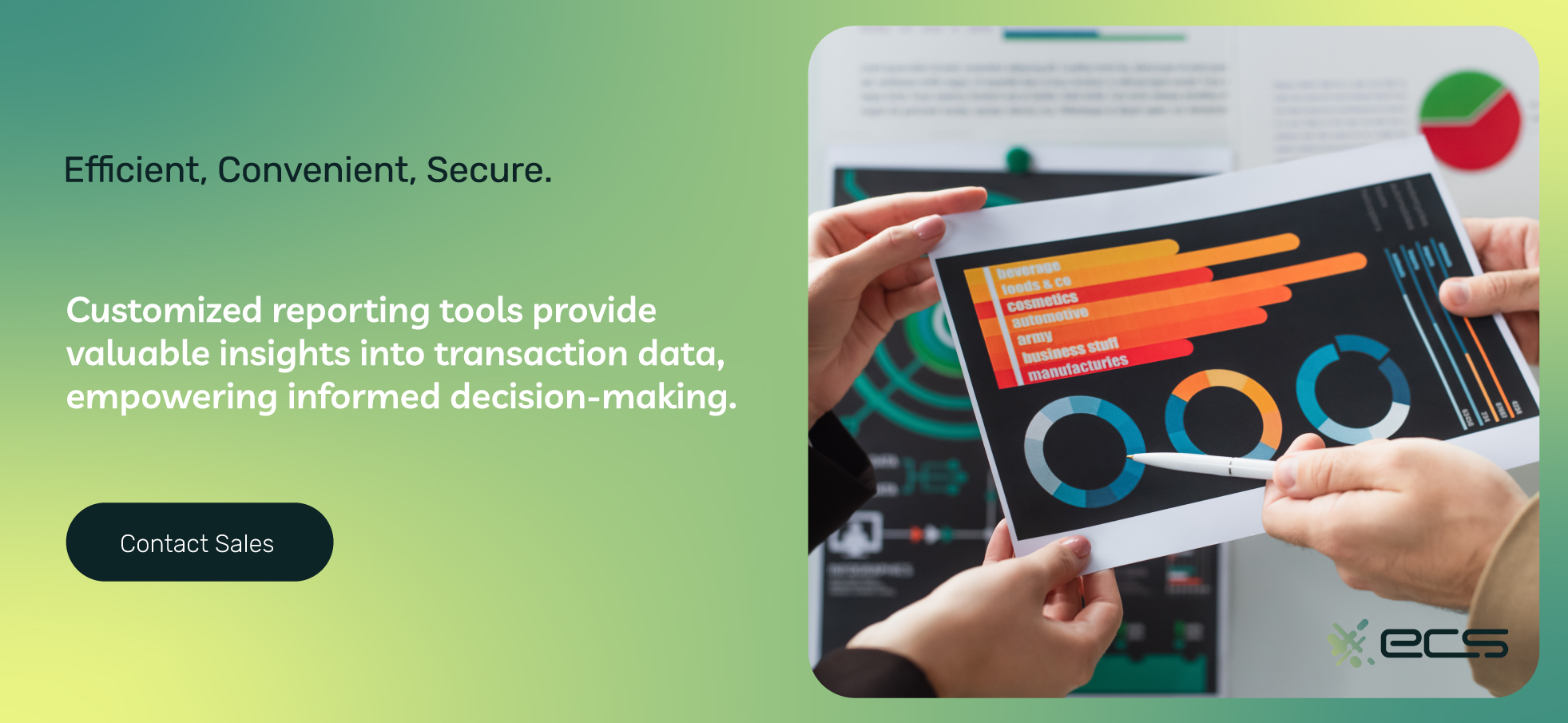
How High-Risk Payment Processing Gateways Work
The initial step in the transaction process is when the cardholder initiates a purchase through either a point-of-sale system or a website virtual terminal. The payment gateway then transmits transaction details to the acquirer, determining the associated credit card network—Visa, Mastercard, Discover, or American Express.
The transaction is then directed to the appropriate payment switch, which forwards a request to the issuing bank—the financial institution that issued the card and its associated account.
The issuing bank performs its fraud protection protocols to determine the legitimacy of the transaction and establishes if the customer has enough funds or credit in their account to cover their purchase. Upon successful verification, the issuing bank sends its approval back through the credit network to the payment gateway and acquiring bank.
What to Look for in a High-Risk Payment Processing Gateway Provider And Its Benefits
So, what are the benefits that come with a high-risk payment processing gateway? Here are just a few of the benefits to consider when deciding on the right high-risk gateway for your business.
1. Access to More Customers
Of course, the most apparent reason to apply for a high-risk payment gateway as a merchant with a high-risk factor is the availability to expand your customer base. How? Well, because billions of customers globally use debit and credit cards to make purchases every day.
If your business is unable to accept digital payments, it will lose out on potential revenue. By accepting standard payment methods, you’ll never have to turn away someone who is interested in buying your product or service but only has a card to pay.
2. Payment Diversity
Securing a merchant account ensures–no matter the industry of your business–easy payment from clients, whatever the method. That means accepting not only cash but also credit cards, debit cards, ACH, and other types of digital payments. For certain businesses, this might even mean accepting newer payment types, such as cryptocurrencies.
Merchants who have been approved for a high-risk account should be able to accept all forms of payment. However, you will first want to ensure the high-risk merchant services provider you choose offers various payment solutions.
The right high-risk payment processing gateway should be able to offer your business eCommerce virtual payment gateways, mobile payment processing, in-store card readers, ACH processing, and a variety of POS integration tools to keep your business running seamlessly.
3. Eliminating Credit History Concerns
Credit history can have negative effects on a lot of your finances, but it shouldn’t affect whether or not your business can accept specific transaction types. There is no reason to let an imperfect credit score impede your business.
High-risk merchant accounts are the ideal option for businesses that have previous financial problems, such as bankruptcies, missed payments, etc, that traditional merchant accounts would use as a means to deny payment processing privileges. But with the approval of a high-risk account, these business owners need not worry about running an efficient business.
4. Transparent Fee Structures
One of the main concerns that businesses have about high-risk merchant accounts is that they have higher merchant fees compared to alternative payment processing platforms. However, a closer reveals that high-risk merchant gateways are only marginally more costly than their lower-risk counterparts.
This is because many low-risk payment processors, such as Square or Stripe, charge a flat rate, whereas the right high-risk processor may charge interchange-plus rates, which is more affordable and more transparent in most cases. In fact, if you find the right high-risk payment gateway, your business can establish its own account with little to no setup fees.
5. Increased Credibility
One of the most common challenges a high-risk company in any industry faces is its credibility among potential customers. However, there are many ways to establish credibility, such as offering a desirable product or service experience.
However, businesses also need to make it easy for customers to pay for these products or services by offering various types of transaction options. Otherwise, the lack of flexibility may induce consumer concern. But, with an established payment processing gateway, a high-risk merchant will appeal to customers with easy purchases.
6. Ongoing Support
Lastly, it is essential to understand that establishing a high-risk payment gateway for your business involves more than just setting up a system. It also involves continuous management and making the appropriate adjustments along the way.
It’s no secret that Square and similar payment platforms are infamous for their lack of customer support. However, with the right high-risk payment provider, you can be confident that potential concerns can be quickly resolved.
If you have questions or need guidance, customer support teams are readily available– Especially at ECS Payments. ECS provides knowledgeable in-house customer support. Our extended hours offer ready assistance to all our high-risk merchants.
ECS Payments: A Versatile Payment Solution for Both Low and High-Risk Industries
ECS Payments offers flexibility and nuanced payment and merchant solutions for varied business types. With nearly three decades in the merchant services industry, ECS has it all. Our innovative solutions and payment technology advancements offer a full suite of payment options for our low and high-risk merchant accounts.
We cater to low-risk merchants such as:
- Automotive
- Equestrian
- Firearms
- Food Service
- Grocery & Convenience
- Healthcare
- Hospitality
- Non-Profit
- Personal Care
- Public Sector
- Retail
- Small Business
Beyond low-risk, ECS specializes in secure payment transactions for high-risk gateways for industries, including:
- Adult entertainment
- Bail bonds merchants
- CBD merchants
- Collection agencies
- Credit repair services
- Debt consolidation services
- Firearms (FFL) merchants
- Health supplements & nutraceuticals
- Licensed gambling
- Tobacco merchants and smoke shops
- and more!
ECS Payments offers personalized merchant accounts and WooCommerce payment support with many added benefits. WooCommerce integration is also straightforward with plugins such as the WooCommerce Bank of America or the Authorize.net API for payment processing.
ECS Payments is a leader in high-risk payment processing and has worked with merchants in every high-risk industry. We know exactly how to get your account underwritten and approved with the best pricing structure options for your unique needs.
ECS Payments Customer Support
Helpful customer support is vital when it comes to payment processing. Problems at the point of sale could cost your business money. With ECS Payments, you have extended access to knowledgeable in-house support specialists who know your business and industry.
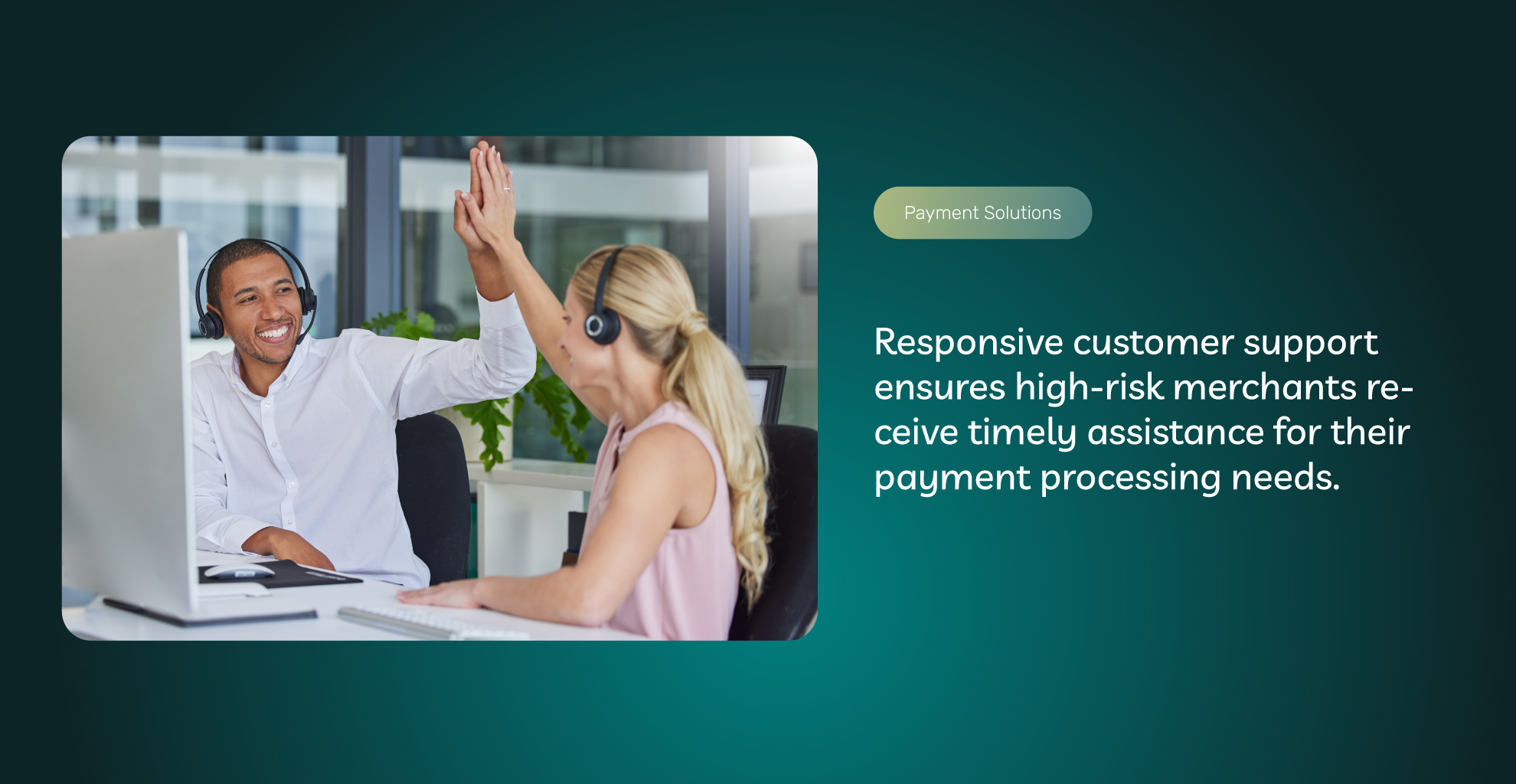
ECS Payments Solutions and Services
ECS offers secure credit and debit card payment solutions for both low and high-risk merchants online and in person with solutions such as:
- Countertop terminals or point-of-sale systems
- Mobile payment processing solutions
- Online payment processing with virtual terminal gateways
- Contactless payment solutions
- Recurring payment options
Moreover, ECS offers comprehensive business solutions beyond payment gateways that could round out your payment solutions suite, such as:
- ACH transactions
- ATM services
- Gift Card and loyalty programs
- Remote Deposit Capture
- Digital receipt options
- A customized reporting dashboard
- Mobile applications
- Payment gateway integrations
- PCI security assistance
- Banking services
- Lending
- Merchant Cash Advance
Get Started Today With Your High-Risk Payment Processing Gateway
When you’re ready to adopt the latest payment technology to help improve your billing, payments, and patient experience, you need a trusted technology partner.
ECS Payments is a leader in high-risk payment processing and merchant services. We offer the latest payment solutions, from card readers to virtual terminals and beyond.
Contact ECS Payments today and speak with one of our experts to learn more about our innovative payment solutions for high-risk payments.
Frequently Asked Questions about High-Risk Payment Processing Gateways
High-risk businesses are those that pose a financial and reputational risk to payment processors due to factors like excessive chargebacks, unstable business history, poor credit, or falling under specific industries.
Specific industries, such as adult services, online dating, cannabis, credit repair, and bail bonds, are automatically high-risk due to factors like intangible products, regulatory restrictions, and serving questionable clients.
Unlike traditional gateways, high-risk payment gateways cater to businesses with a higher risk profile. They specialize in handling larger transaction volumes, international transactions, and implementing advanced fraud detection tools to mitigate risks associated with high-risk businesses. As a result, high-risk payment gateways may implement rolling reserves and higher processing fees to compensate.
The best high-risk gateway will offer various payment options, including eCommerce and in-person credit, debit, and ACH solutions. ECS Payments offers all this and more, with competitive high-risk gateway benefits such as seamless integration, easy approval, cost-effective rates, and customer support available whenever you need assistance.
